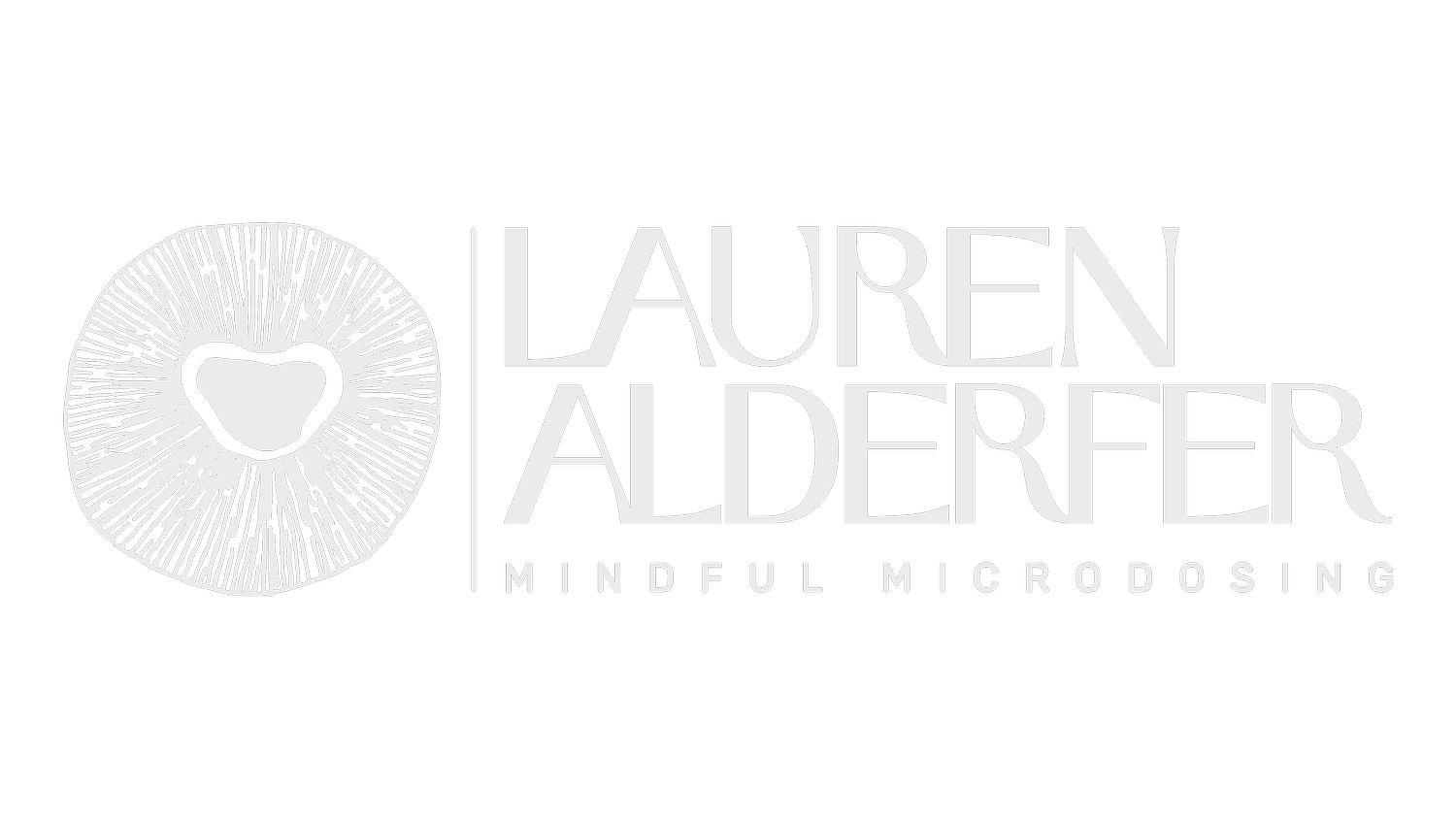Psychedelics for the Forgotten Many: How Mindful Microdosing is Reshaping Everyday Lives
If you were asked, ‘Would you like to experience more mindfulness?’ most people would answer 'yes' without hesitation.
Now if asked, 'Would you use plant medicine with safety, support, and intention to bring about more mindfulness?' the answer would probably be met with much fear and hesitation.
However, if asked, 'Would you use psychedelics with safety, support, and intention to bring about more mindfulness?' the answer might be met with indignation.
Yet, the increased use of psychedelics and plant medicine (though technically fungi, mushrooms are included as plant medicine. Both will henceforth be referred to as psychedelics) is continuing to grow. Decriminalization and legalization efforts are being seen in many states. While legal avenues expand, an underground network flourishes. Individual access to information, be it through books, online training, social media groups, or local contacts, increases daily. The bottom line is that the continued growth in the use of plant medicine and psychedelics will reach more and more people today, next week, this coming year, and in the decades ahead.
Psychedelics for Whom?
Currently, the emphasis on the use of these substances gets a lot of news coverage for their potential to help a wide audience suffering from emotional, mental, or addiction issues. For example, veterans with PTSD, those suffering from drug-resistant depression, and addicts who have not successfully withdrawn despite their best efforts.
Many people have gone on retreats where the use of psilocybin mushrooms is legal, for example, in Jamaica. Others have sought support and guidance closer to home. In both cases, their personal testimonials continue to inspire and impact others who struggle with similar circumstances that impede their ability to live life from a more heart-centered, open, and trusting nature—one that stems from a deep connection to self, family, friends, the community, and the natural world.
Others have been fortunate enough to participate in the multitude of clinical trials undertaken and underway. These are taking place at some of the best-funded research institutions, such as the NIH, and in the most prestigious universities worldwide. These trials have focused on some of the most pressing and elusive health issues, such as mental and emotional wellness in those suffering from PTSD, depression, and addiction. Even greater use of psychedelics is also being explored in some trials to study their benefit in a wide variety of cases: from an NIH study with professional athletes to a Johns Hopkins study for depression in early-stage Alzheimer's, eating disorders, migraines, and a Harvard study looking at those with terminal illness, to give just a few examples.
Psychedelic Use for the Everyday Majority
There is also a growing number of people who are craving deeper meaning in their lives. Many of them are actively seeking out psychedelics to experience something beyond their ordinary, dualistic minds—an experience of greater unity and boundless love. For many of these people, psychedelics can be a resource and ally. This group has also garnered a lot of attention within the psychedelic landscape, given the number of retreats and ceremonies specifically designed for spiritual seekers.
While there are a great number of people suffering from a variety of conditions benefiting from the use of psychedelics, and another group using psychedelics for spiritual meaning, there is another group—a forgotten group that may have gotten lost in the conversation. It is the large majority of ordinary people of all ages going about their day-to-day lives: young adults beginning their working lives, moms taking care of families, the person at the grocery store, the neighbor down the street. These are everyday people who seek to improve the overall wellness of body, mind, and spirit.
If these kinds of people were actively seeking to integrate more mindfulness into their lives, it would seem like a very normal practice and a culturally acceptable goal. The benefits of mindfulness are well documented: people feeling more relaxed, less reactive, more joyful, and having greater mental clarity. Microdosing, through the discerning use of psychedelics, has the potential to offer the same benefits. So, if microdosing psychedelics in a safe way, supported with guidance, and met with great intention were equated to mindfulness, would it be met with the same support and understanding?
This conversation does not get a strong voice at the table. Yet, it is the forgotten many who could greatly benefit from the reverent and responsible use of microdosing psychedelics.
Think of moms on mushrooms who have more patience for their children and more bandwidth to handle the myriad responsibilities they juggle every day; and the dads who are more focused and connected when reading a book to their toddler, on the soccer field, or taking a walk, hand-in-hand with their child. Think of the women on psychedelics—those sandwiched between taking care of their families and caring for aging parents; and what of the young adults increasingly disconnected from nature, community, and social contact?
Conclusion
To paraphrase James Fadiman, 'for well people to feel more well.' Within the larger conversation, a large majority of people may not be given much focus. Their use should also gain more attention for the vast groups of people who are well but seek to feel even more whole.



